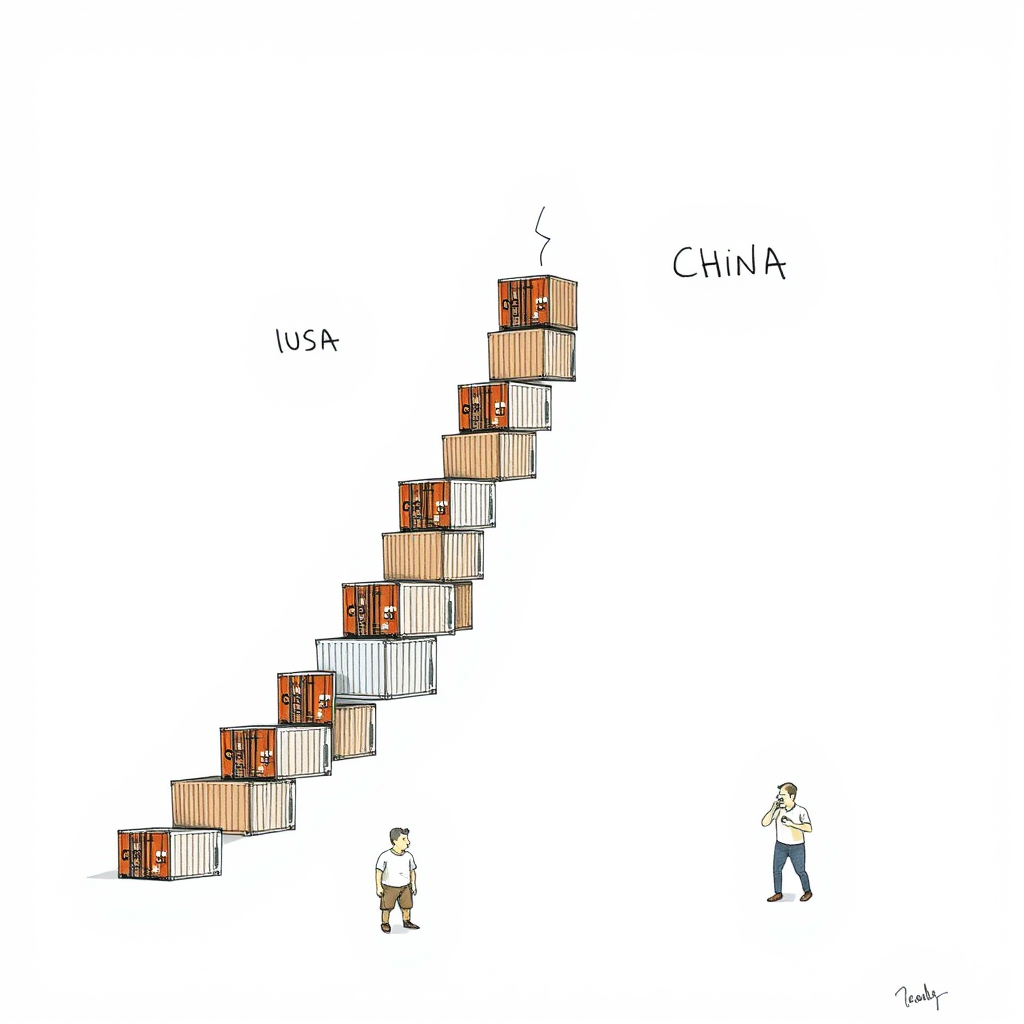US-China Trade War: Tariffs Spiral Out of Control

The escalating trade war between the United States and China has rapidly intensified over the past week, triggering widespread economic anxiety and raising the specter of a global recession. What began as a push for reciprocal tariffs has devolved into a high-stakes confrontation, with both sides demonstrating a willingness to inflict significant economic pain.
Initially, the US, under President Donald Trump, accused China of unfair trade practices and imposed tariffs on Chinese goods, starting at 10 percent. Trump argued this was a necessary step to level the playing field after decades of alleged exploitation. China responded in kind, initially levying a 67 percent tariff on American goods.
The situation quickly spiraled. Trump announced “reciprocal tariffs,” aiming to match Chinese tariffs, but initially proposed charging only half the rate. This led to a 34 percent increase on Chinese goods, bringing the US total to 44 percent. However, the US then added a blanket 10 percent tariff on all nations, citing national security concerns, pushing the total on Chinese goods to 54 percent.
China retaliated by matching the 34 percent increase, infuriating Trump and bringing the US total to 101 percent. Trump then issued a 24-hour ultimatum demanding China withdraw its tariffs, threatening an additional 50 percent levy. When China refused, vowing to “fight to the end,” Trump followed through, raising US tariffs to 104 percent.
China responded by matching Trump’s 50 percent increase, bringing its total tariffs on US goods to 151 percent, exceeding the US rate. As of today, US tariffs on China stand at 104 percent.
The rapid escalation has sent shockwaves through global markets. Trillions of dollars in investor wealth have been wiped out, and concerns are mounting about the impact on oil prices, trade, supply chains, and logistics.
While the stated goal of the US is to address trade imbalances and protect American interests, the tit-for-tat approach appears increasingly counterproductive. The escalating tariffs are likely to harm both economies, as well as businesses and consumers worldwide. A negotiated solution, rather than continued escalation, is urgently needed to avert a potentially devastating global recession. The current trajectory suggests a willingness to prioritize political posturing over economic stability, a dangerous game with far-reaching consequences. It’s a clear demonstration of how quickly trade disputes can spiral out of control, highlighting the need for stronger international cooperation and a commitment to resolving disputes through dialogue, not tariffs.